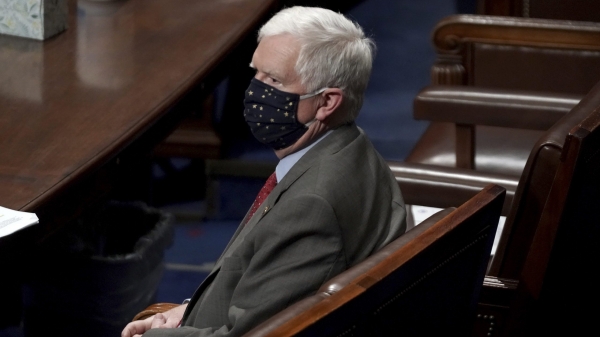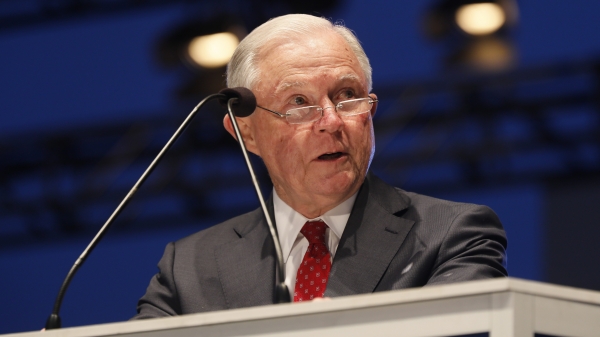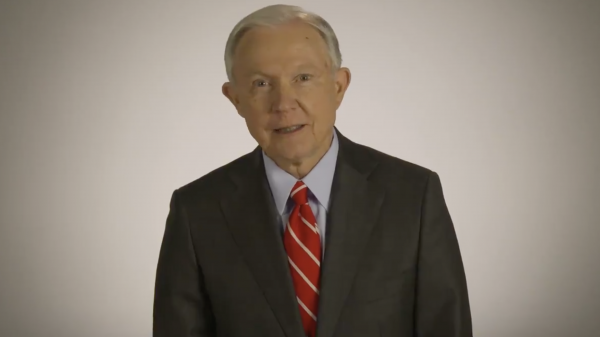By Bill and Susan Britt
Alabama Political Reporter
Recently appointed Senator Luther Strange, only a few months into his new job, has potentially committed two major campaign finance violations, according to Secretary of State John Merrill.
Campaign finance records show that Strange transferred campaign contributions between his US Senate campaign account and his Alabama Attorney General account, outside of the legal window. The contributions also exceeded the legal limit on account transfers.
Each of the violations could be prosecuted as felony offenses if the State Ethics Commission takes up the case and refers charges. Former Gov. Robert Bentley faced possible felony charges for a similar transfer that took place outside of the legal time frame.
Though Strange was appointed to the Senate in February, his US Senate campaign began in 2016. That’s when the pair of campaign contributions were made, which could possibly derail Strange’s bid to earn his seat in the upper chamber of Congress by his own right. According to the State’s Fair Campaign Practice Act (FCPA), it is unlawful for a candidate to receive contributions past 120 days of an election, until the beginning of the next election cycle. On December 6, 2016, Strange transferred $606.00 from his Federal Senate campaign account into his State Attorney General account.
A few weeks later, on December 30, 2016, he moved $454.00 from his US Senate campaign account to his State Attorney General campaign account. Strange listed the transfers as reimbursements from “Strange for Senate” to “Alabamians for Luther Strange.”
According to Section 17-5-7.3 of the State’s campaign finance laws, “For a period of 120 days after the election in which the person was a candidate, but only to the extent of any campaign debt of the candidate or principal campaign committee of the candidate as indicated on the campaign financial disclosure form or to the extent of reaching the threshold that is required for qualification as a candidate for the office which he or she currently holds, or both.”
Strange transferred a total $1,418.27 from his US Senate campaign to his State campaign.
Section 17-5-15.1 (a) reads, “A principal campaign committee of a state or local candidate and any person authorized to make an expenditure on its behalf may not receive or spend, in a campaign for state or local office, campaign funds in excess of one thousand dollars ($1,000) that were raised by a principal campaign committee of a federal candidate.”
According to Strange’s FCPA and his FEC filing, he exceeded the $1000.00 limit by $418.27. Each violation could be prosecuted as a felony. Violation of the 120-day rule is a Class B Felony punishable by up to 20 years in prison.
The $1000.00 statute is a Class C felony which carries up to 10 years behind bars.Transactions show that Strange for Senate “reimbursed” Alabamians for Luther Strange as reported on both the FCPA Report (Receipts from other sources) and his Senate report.
Asked about the transfers by The Alabama Political Reporter, Merrill responded to a request for comment.
“That is not a permissible expense and it exceeds the amount that could be given even if it were within the correct time frame,” Merill said of the transfers. “There are two violations there.”
The Secretary of State’s Office has a usual practice of referring such matters to the State’s Ethics Commission as well as the Office of the Attorney General. Bentley faced similar charges after taking a reimbursement from the Republican Governor’s Association outside of the time frame allowed.
He eventually pled guilty to two misdemeanors charges and resigned his office after spiraling sex scandal.
Individuals and companies also cross between Strange’s Senate Campaign and his Attorney General Campaign. Elizabeth Bloom Williams was paid $32,500 categorized as “administrative” in 2015 by Alabamians for Strange, including what appears to be a $2,500 bonus in December of that year for a total of $5,000.
Williams’ company, EBW Development, was also paid by the Strange for Senate campaign beginning on December 19, 2016, in the amount of $1,600 for fundraising consulting. All subsequent payments made January through March of 2017 are also categorized “fundraising consulting” at $3,000 per month with a transaction in the amount of $15,435 in January 2017.
It is unclear what administrative work Williams performed for Strange during his tenure as Attorney General. Williams was paid for fundraising consulting from Strange’s Senate Campaign. The money paid Williams as an individual from Strange’s State campaign funds and those paid her company intersected in December 2016.
During Strange’s 2014 Attorney General’s race J. Ashley Newman served as Treasurer, her company Newman and Associates in 2016, was paid $20,688.83 categorized as “administrative” by the Alabamians for Strange in varying amounts.
Newman’s payments for work on Strange’s State campaign and his Federal intersected as well. Newman and Associates received $10,657 since January from Strange for Senate for “accounting services,” and like Williams, Newman received payments from both campaign accounts in December 2016.
Secretary of State Merrill vowed to follow campaign violation wherever they may lead, he has recently turned over several potential violations to the State Ethics Commission and to Attorney General Steve Marshall.
Merrill said to APR that he believes that there are at least two violations in Sen. Strange’s filing.






















































